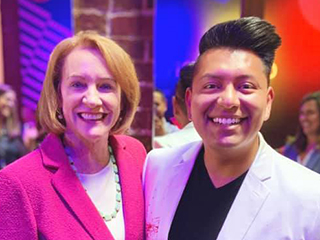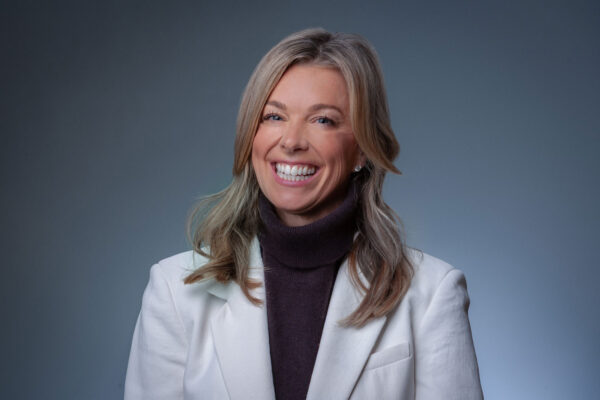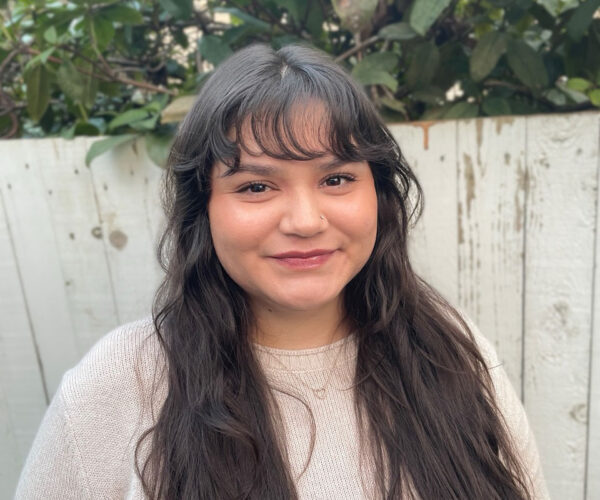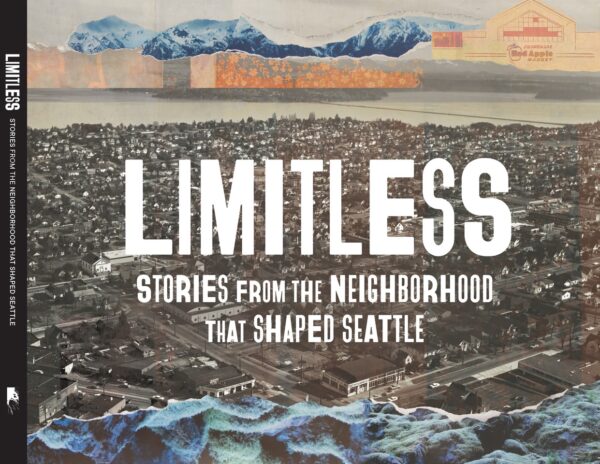
By N.L. Sweeney
While attending the University of Washington Bothell — and holding down a full-time job — Ray Corona spent the little free time he had advocating for immigrants’ rights.
As a gay, Latinx immigrant, he says one of his proudest achievements was when, at 17 years old, he came out about his undocumented status and testified for the REAL (Raising Educational Access, Changing Lives) Hope Act in front of the Washington State Legislature. The act extends consideration for the State Need Grant Program to undocumented students.
That effort is also one of the reasons Seattle Mayor Jenny Durkan presented Corona with the 2019 Emerging Leader Pride Award last month. The city’s Pride Awards recognize leaders for their work in advancing the rights and dignities of the LGBTQ+ community. Five other local leaders were honored, including Karen Fredriksen-Goldsen, professor in UW’s School of Social Work, who received the Outstanding Leadership Pride Award.
“I am incredibly grateful to have been awarded the Emerging Leader Award, especially in the same year as we commemorate the 50-year anniversary of the Stonewall Riots,” Corona said. “Given the current administration’s impact on many marginalized groups, our Stonewall moment is now. I look forward to honoring that memory moving forward.”
Making connections
Corona’s family came to Seattle from Mexico City when he was 9 years old. He attended public schools, but as he grew older, he didn’t think college in the United States was an option for him. His family couldn’t afford the tuition and, at the time, the only financial resources available to undocumented immigrants were a limited number of private scholarships.
That changed in the 10th grade when he learned about the College Success Foundation (CSF), which provides scholarships and support to low-income and underserved students — including undocumented immigrants — to help them finish high school and graduate from college. “Once I knew college was open to me,” said Corona, “I knew I could have a different future.”
Although he was still uncertain what that future might look like due to his immigration status, Corona was sure he would use his degree upon graduation. Using the resources from CSF, Corona was able to pay for most of his college education with scholarship funds.
Through the CSF program, Corona was connected to former academic adviser, Linda Bale. “Linda did so much more than just help me complete my degree,” he said. “She provided me both the emotional and the career planning support I needed to come out of two closets, being an undocumented citizen and being gay.”
Through his studies, he was also connected to Alan Leong, then a lecturer in UW Bothell’s School of Business whom Corona credits with teaching him how to network. “I still use the skills I learned in his class to this day,” he said.
Reflecting on his time at UW Bothell, Corona feels blessed. “I found the resources — both financial aid and personal — to succeed.”
Finding passion
A 2013 graduate with a bachelor’s degree in Society, Ethics & Human Behavior, Corona also credits his major in the School of Interdisciplinary Arts & Sciences with teaching him to examine social institutions through a systemic lens — a critical perspective he still values today.
“In my classes, beyond learning the subject matter, I learned how to synthesize complex topics, make them understandable and take action on the findings,” Corona said. “Working in the community and in advocacy, it is really important to be able to take information and make it understandable for other people.”
Recalling his experience of coming out to his parents, he noticed similarities between living as undocumented and growing up queer. While his experience was a positive one, he knows not everyone is lucky enough for things to turn out as well.
“For safety reasons, there are topics you can talk about or not based on who is in the room,” said Corona. “I began to envision a safe space for open conversations, a place where people could get the kind of emotional support I received from my family and the people around me when I came out.
“I know many others who didn’t have the same support for a college education, for a variety of reasons,” he said, noting that this can include financial opportunities, familial support and even the ability to celebrate Latinx culture in a queer-friendly space.
“When people ask me why I became an activist,” he said, “I point to the lack of access for my intersectional community as my motivation.”
Bringing people together
In 2017, Corona combined his passion to serve his community and the skills he honed at UW Bothell to establish Somos Seattle, a space where members of the Latinx LGBTQ+ community can gather. As founder and executive director of Somos, his goal is to “build an active community, share resources and foster opportunities for learning and growth.”
In addition to being recognized for his work with Somos, Corona received the mayor’s award for serving on the Seattle LGBTQ Commission and being one of the main organizers of the city’s inaugural Latinx Pride celebration in 2017.
Corona offers this advice for students who share his background: “When you enter a space, make sure to bring all of yourself — your intersections and various identities — to the conversation. That’s how we can start to make an environment that can include everyone.”


